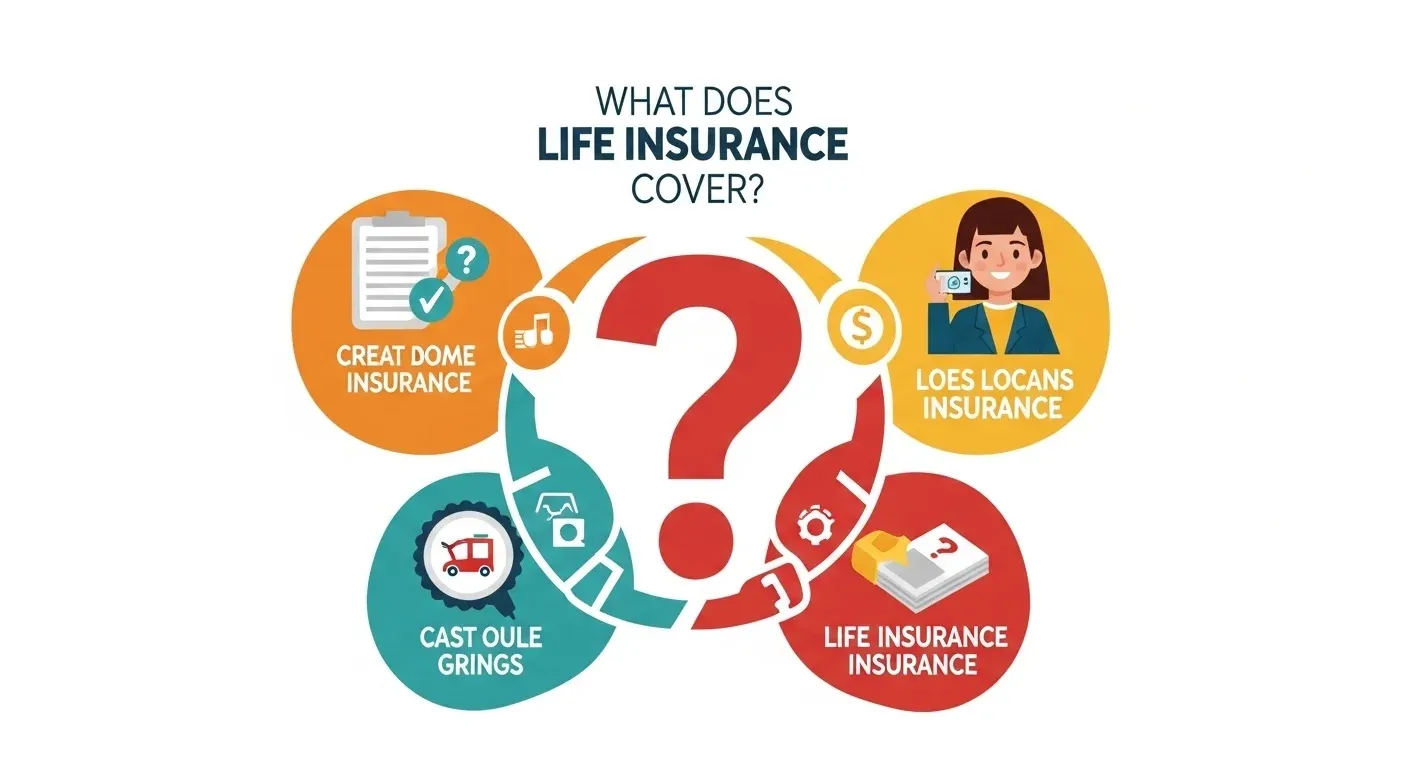
What Does Life Insurance Cover: A Simple Explanation for Policyholders
Insurance seems like a mystery, particularly when it comes to terms and policies. One of the top questions most people have is straightforward but significant: what does life insurance cover? If you're purchasing a policy, it's critical to be aware of what's included and where the gaps are. Here's an easy-to-understand breakdown so you know the protection life insurance has to offer and how to make it best serve your family.
The Core Reason: The Death Benefit
In its simplest form, life insurance pays out a lump sum of the death benefit to your loved ones when you die. That money provides your family with financial space to deal with bills, pay debts, and manage uncertainty during a trying time.

Whether you're the sole income provider or not, what you contribute is worth something economically. A stay-at-home parent, for instance, offers childcare, organization, and maintenance of day-to-day care – all of which would be paid for to replicate. Life insurance comes in to alleviate that monetary burden by providing substantial assistance when it's needed most.
Funeral and Burial Coverage
One of the greatest immediate expenses following a death is last arrangements. Funeral costs can range anywhere from $7,000 to $15,000. Life insurance can pay for everything from the casket and embalming to service charges and cemetery fees, so your family is not left scrambling for last-minute money in the midst of sorrow.

Paying Off Debts and Loans
Unpaid credit cards, car loans, or even joint mortgages will fall on your family's shoulders when you die. Life insurance can help you avoid that fiscal burden. Policies are often used simply to pay off the mortgage so foreclosure is avoided and the family can remain in the home without additional burden.

Replacing Lost Income
If you’re the main earner in your household, your death would impact household income significantly. A life insurance payout provides a financial safety net, enabling daily expenses and future needs like education or healthcare to continue uninterrupted.
Funding Childcare and Education
It’s expensive to raise children. If something happens to you, your partner may need help covering childcare, tutoring, or extracurricular activities. Life insurance helps provide for those ongoing needs. On a broader scale, it can also contribute to future tuition and related costs, keeping educational dreams alive even after you’re gone.

Business Continuity and Buy-Sell Plans
Owners use life insurance to cover business and succession plans. In a partnership, a life insurance settlement allows surviving owners to buy out the deceased partner's share, ensuring business continuity without tapping into company funds or personal resources.
Complementing Estate Taxes and Legal Responsibilities
If your estate falls above exemption levels, death benefit proceeds can assist with the payment of estate tax and legal expenses. This way, heirs won't be forced to sell assets such as a family residence or business to address tax burdens, maintaining generational wealth.
Leaving a Legacy or Charitable Gift
Not everybody buys life insurance solely to pay for funeral expenses or bills. Some apply it deliberately to create a legacy in the form of an inheritance or a donation. A policy can make sure that your causes and ideals outlast you, even if retirement account funds are scarce.
What Life Insurance Doesn't Cover
Policymakers sometimes insert exclusions for a purpose. Say many life insurance policies come with a contestability period usually two years. If you pass away during that time and the insurance company discovers that you left out important medical history or made false statements on your application, they can reject the claim.
Other typical exclusions are death by suicide in the first two years of policy, criminal acts, fraud, or undeclared dangerous hobbies such as skydiving. Also, life insurance does not cover disabilities, unemployment, or long-term sickness; those risks need to be separately insured with disability or critical illness insurance.

Customizing Your Coverage with Riders
Most policies allow you to purchase "riders" additional features that increase coverage. An accelerated death benefit rider, for example, permits you to tap into part of the death benefit if you have a terminal illness. Some riders cover chronic disease, accidental death, or even add term coverage for your children. Riders are more expensive but provide flexibility that can accommodate life's needs that change over time.
Conclusion
Life insurance does so much more than most people think. From paying for funerals, debt, income gaps, and education to funding business succession or philanthropic objectives, an effectively crafted policy can help alleviate a host of financial burdens. It's not about planning for one's death, it's about protecting your loved ones' future so they can keep prospering.
If selected properly, life insurance is a valuable tool for protection, planning, and peace of mind. Need individual advice or a personal explanation? I can assist just let me know.
Ready for Expert Help?
Need help getting started? Consult with a Savvital advisor today for personalized assistance exploring your choices and selecting a plan that suits your lifestyle and your budget.
Published on 16 Oct 2025
Author: Savvital Team